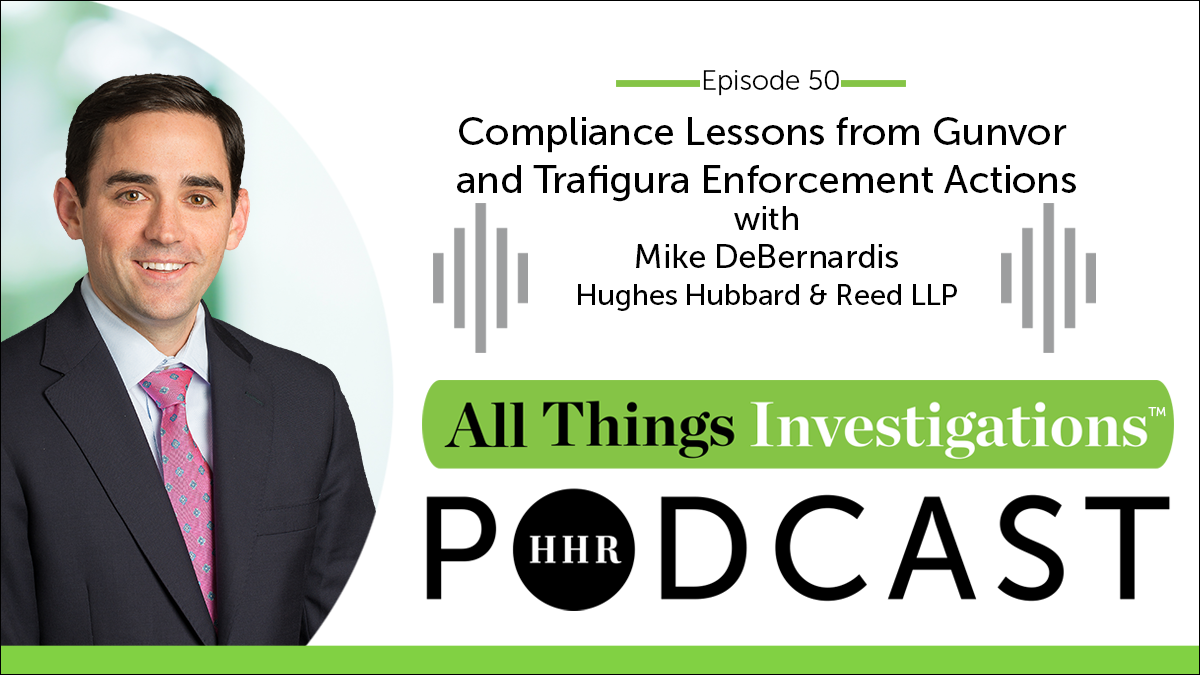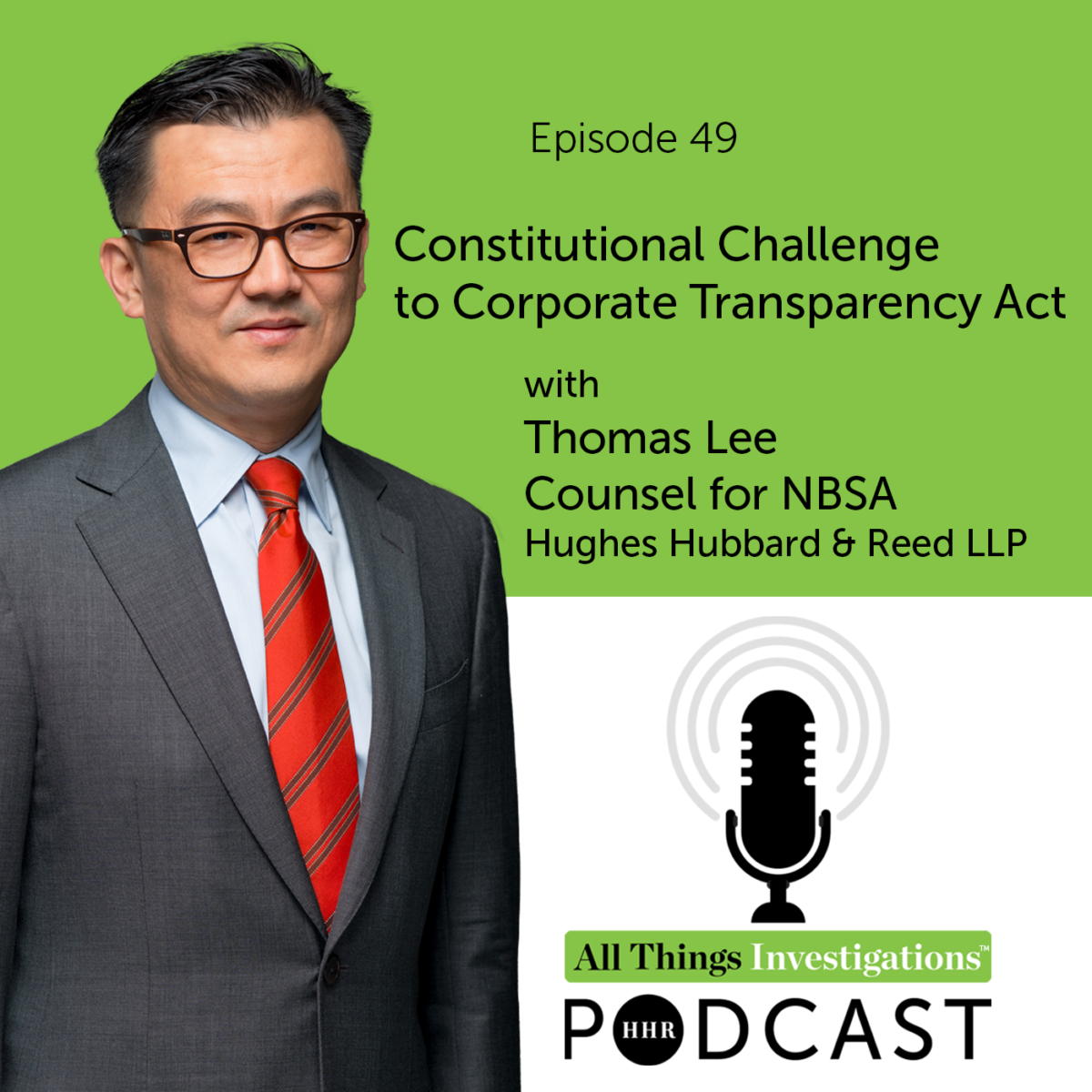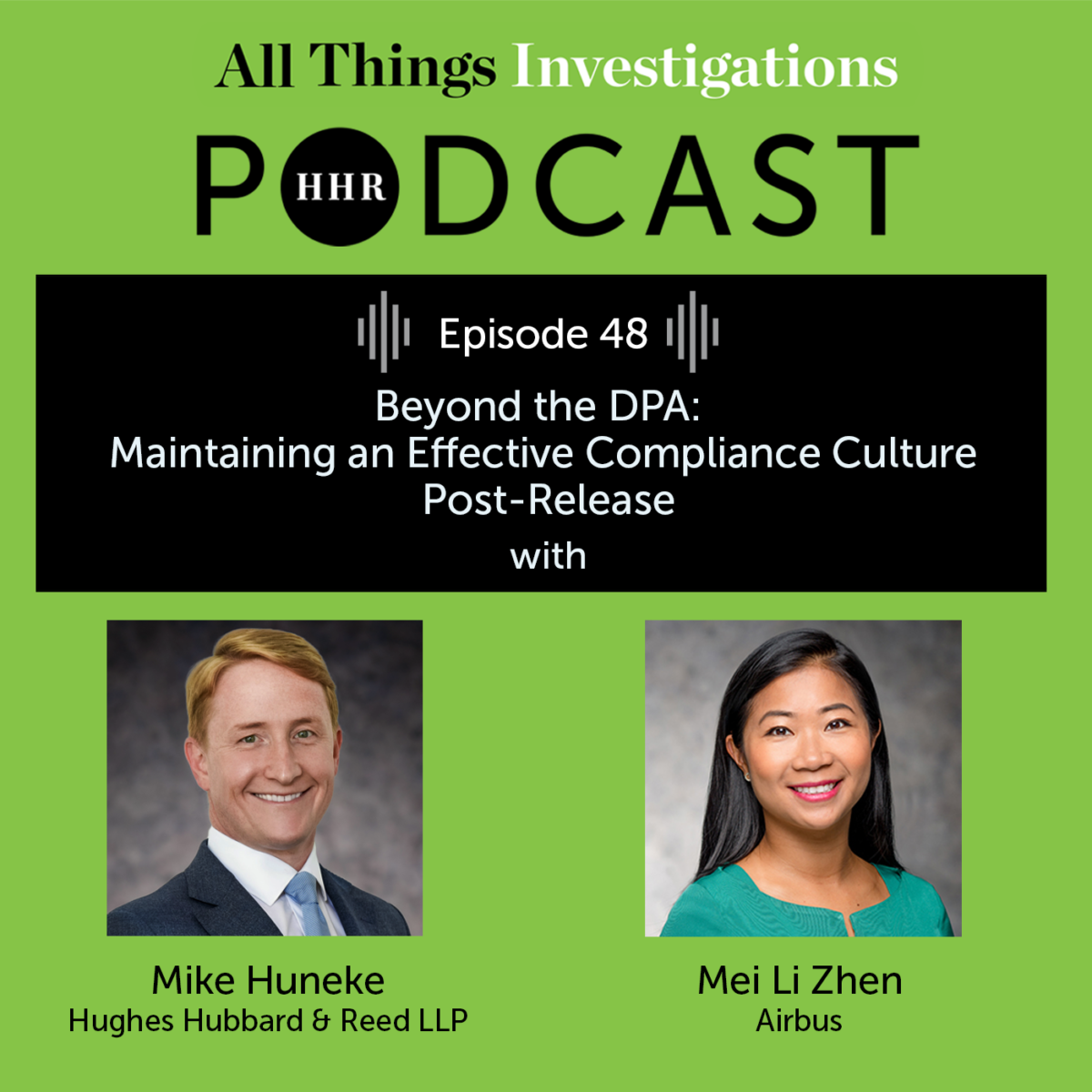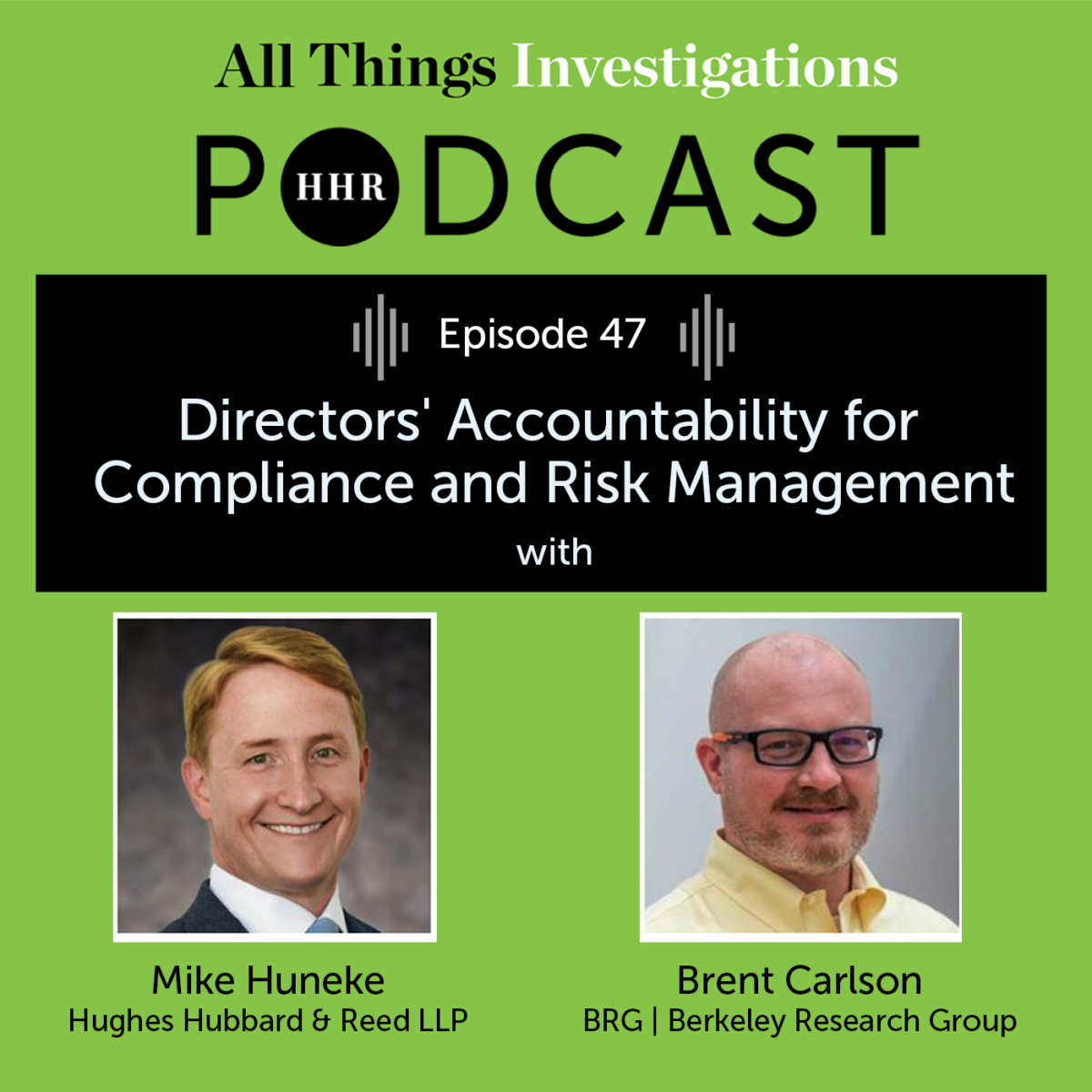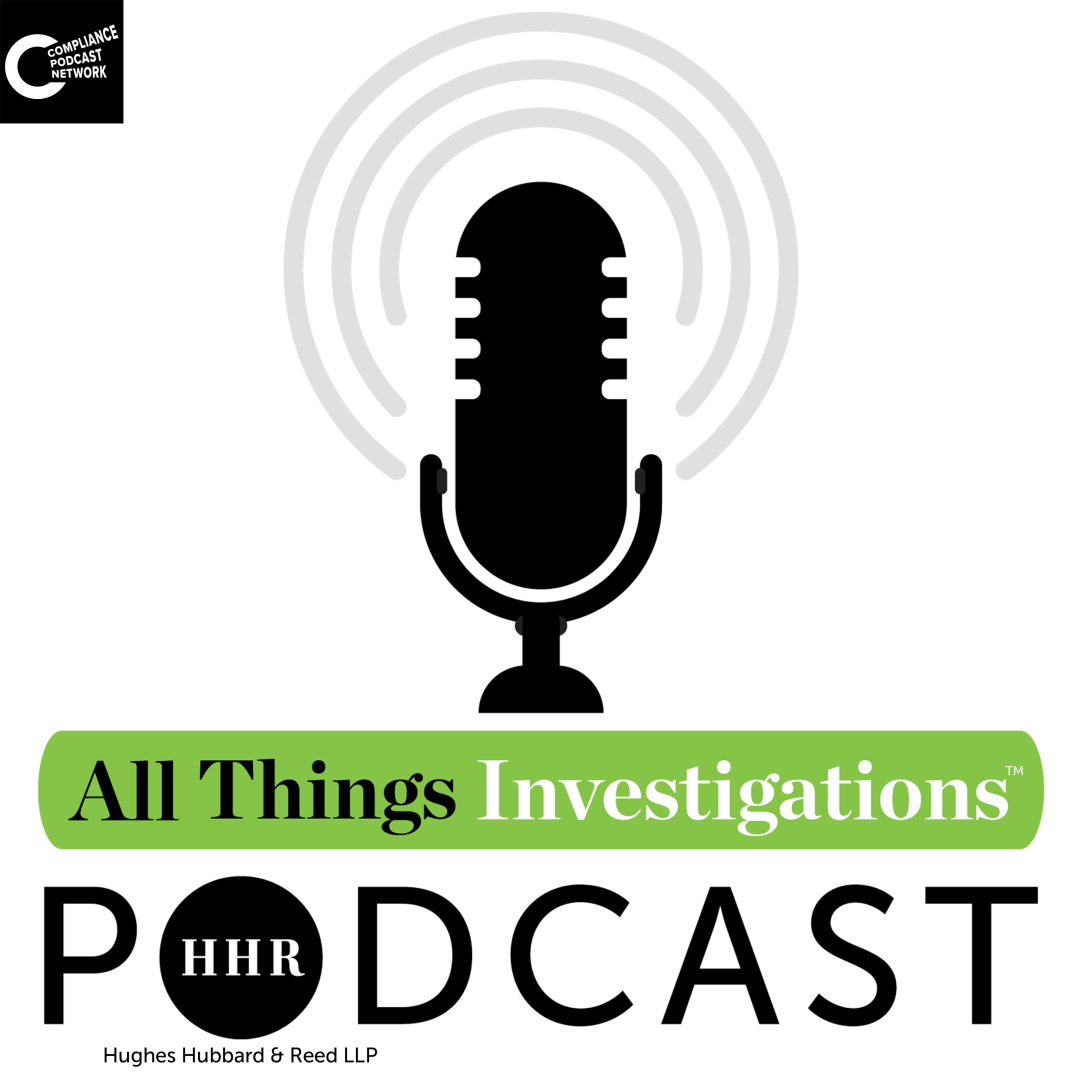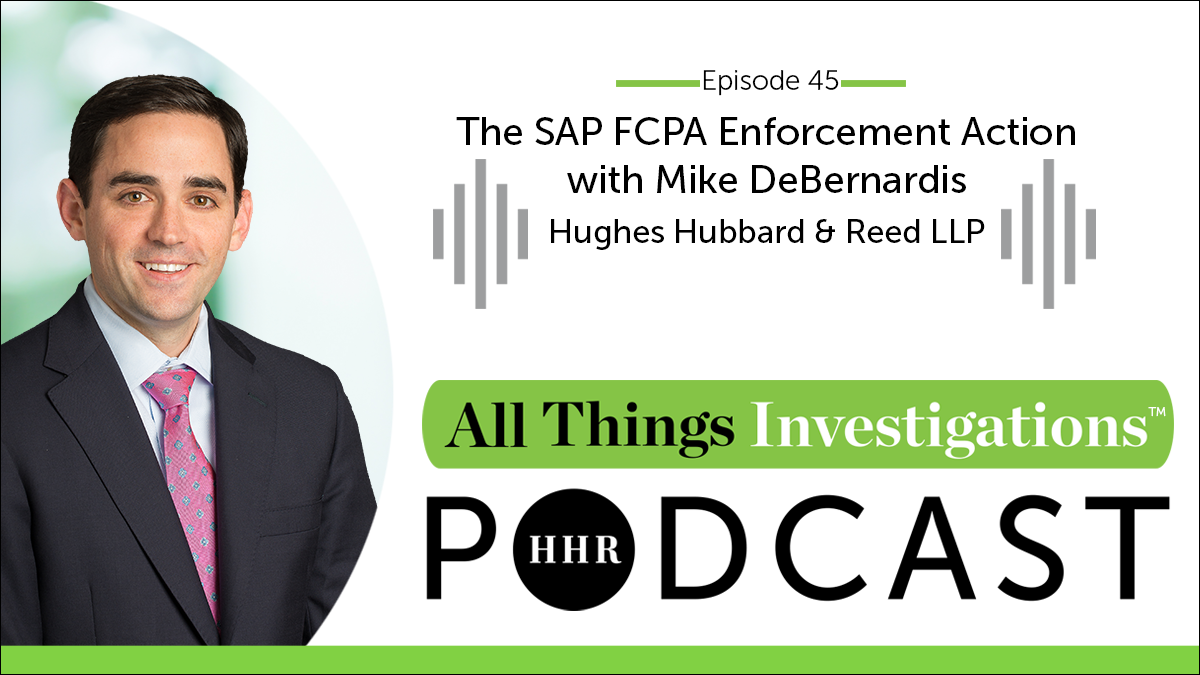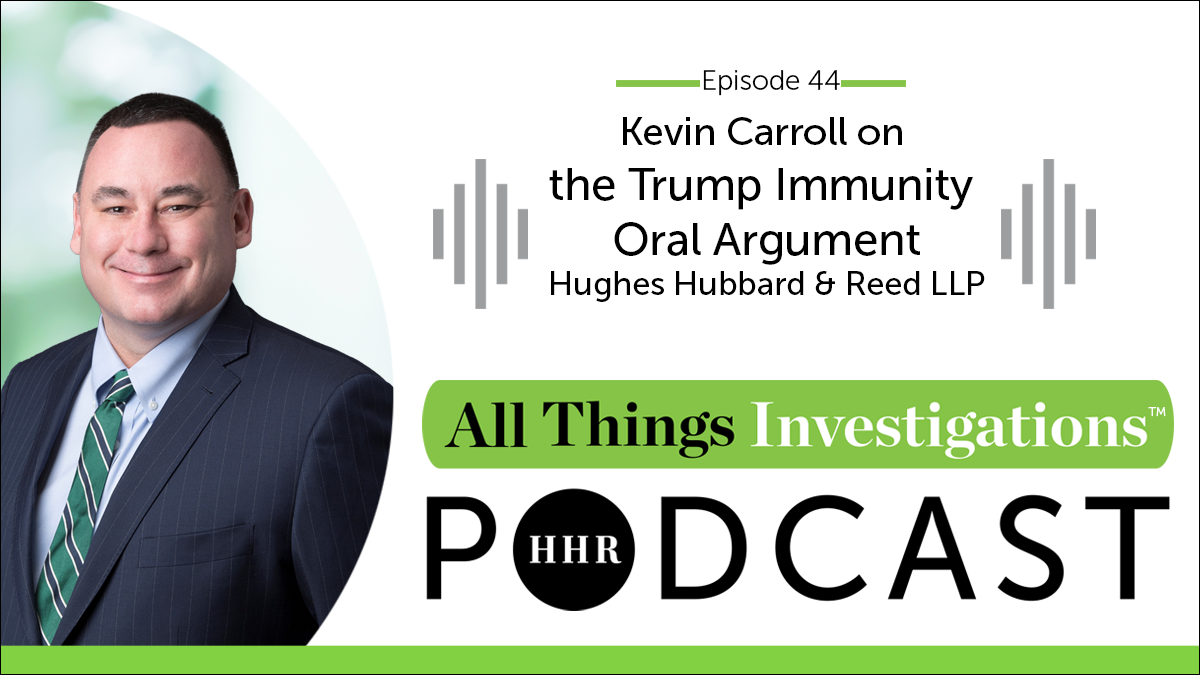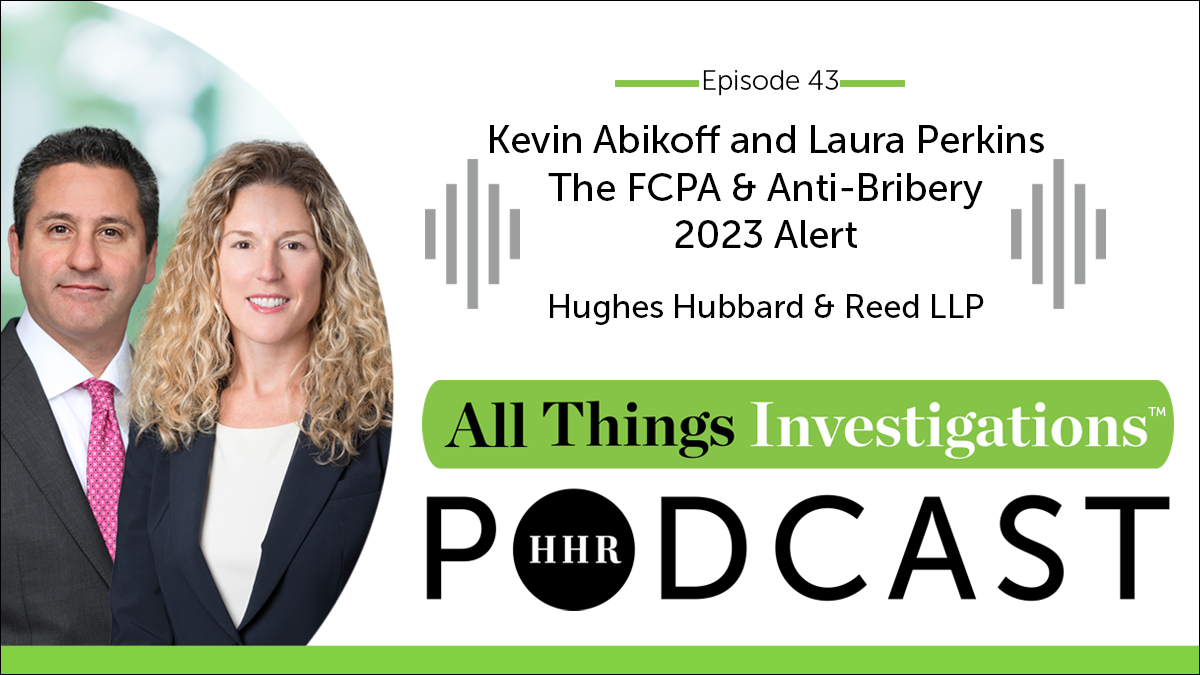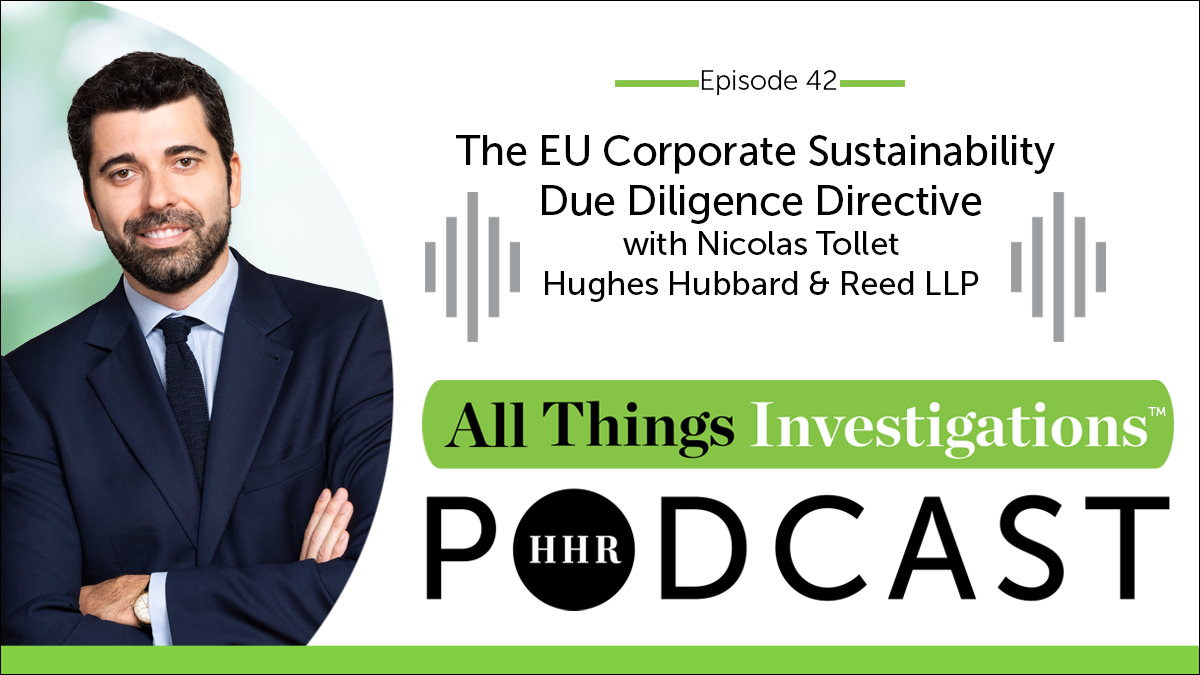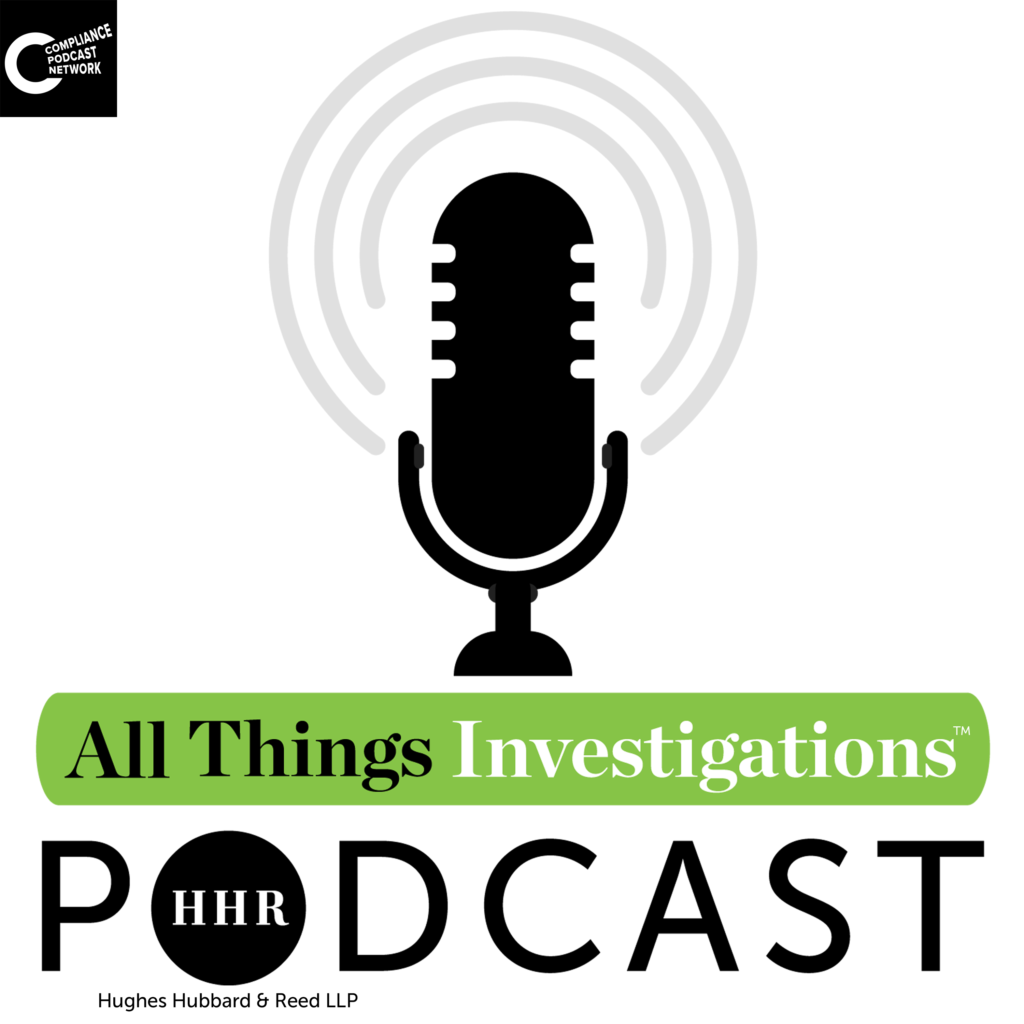Today’s episode of All Things Investigations is a deep dive into the 2023 FCPA Alert with Tom Fox, Laura Perkins, and Kevin Abikoff from Hughes Hubbard and Reed. They unravel the complexities of the latest updates in anti-corruption laws, focusing on the impact these changes have on companies in the U.S. and abroad. They share a detailed analysis of the current anti-corruption enforcement landscape practical advice for navigating these legal waters, and how we can draw inspiration from a rock and roll great.
Laura Perkins and Kevin Abikoff, from Hughes Hubbard’s Anti-Corruption and Internal Investigations Practice Group, join Tom Fox in this episode. Laura Perkins is the former Assistant Chief for FCPA enforcement at the DOJ, and Kevin Abikoff is a prominent attorney specializing in compliance, anti-corruption law, and internal investigations. Their combined insights provide a unique perspective on the challenges and strategies in compliance and anti-corruption, crucial for businesses operating globally.
In this episode, you’ll hear Tom, Laura, and Kevin discuss:
- Why the FCPA Alerts from Hughes, Hubbard, and Reed always start with a quote from a popular artist – this year’s from Jimmy Buffet: “Go fast enough to get there but slow enough to see.”
- The guidance that was originally issued in 2021 has evolved as the Department of Justice gains experience with the policies and how they want companies to follow them.
- Empowering compliance officers who are on the front lines of protecting companies and shareholders, and how doing so is ultimately good for business.
- What it can mean for companies to self-report to the DOJ and whether or not all of the implications have been considered.
- For years, the DOJ has been talking about compliance incentives, repercussions, and compensation, and this year, they have taken it a step further by allowing companies to benefit via reductions in fines based on their efforts to bring repercussions to individuals involved in misconduct.
- Company boards are obliged to exercise business judgment, which includes taking into account financial repercussions or pursuing bad actors. The new guidance may open the floodgates for private plaintiffs to sue boards that do not.
- Lessons learned from specific enforcement actions from DPA’s, NPA’s, and Declinations, specifically the Ericsson and ABB resolution.
- The scope of anti-bribery and anti-corruption enforcement outside of the US, looking at France, Brazil, and China.
- A growing number of countries are entering the sphere of FCPA enforcement actions in the US and elsewhere.
Key Quotes:
“In the world of sanctions enforcement, obviously there’s a need for speed. We’ll talk about the M&A release that’s come out and the rapid speed at which the DOJ expects you to do everything. Buffett’s quote for us is a reminder that you have to go fast, but you better be looking at what you’re doing as you go.” – Kevin Abikoff
“At what point is a company meant to chase a million dollars, or two million dollars by commencing litigation?” – Kevin Abikoff
“The corporate enforcement policy is an evolution from the original FCPA pilot program. As the department gains experience with these policies and they see some change in the way companies operate and the way their investigations are proceeding, they’re able to fine-tune the policies.” – Laura Perkins
“By and large, prosecutors understand the issues that companies face from labor laws in other countries.” – Laura Perkins
Resources:
Hughes Hubbard & Reed website
Laura Perkins on LinkedIn
Kevin Abikoff on LinkedIn
Tom Fox
Instagram
Facebook
YouTube
Twitter
LinkedIn


